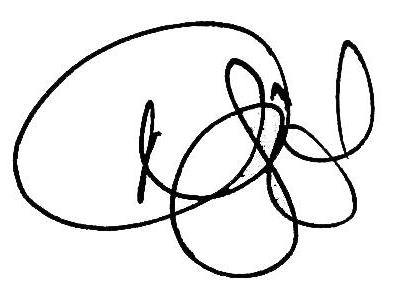Thursday, October 17, 2019 | 4th day of Sukkot, 5780
Dear All,
I get older and my Jewish journey evolves, but almost the only constant is a constantly deepening sense of how amazing the tradition is and how the pieces fit together.
I say that because I felt, this year, that I understood – and felt – Sukkot better than I ever have before.
Partly this was being at Isabella Freedman for the opening days. The trees a glorious riot of changing color. Kids running around. Davening in umpteen flavors – and then a shared Hallel. Physical sukkot that are extraordinary works of art, and testament to the Adamahniks, Tevaniks, and staffers who designed and built them. Old friends and new and good conversations and learning.
And, amidst this, Hazon’s theme quote is this line – the Torah is a commentary on the world, and the world is a commentary on the Torah.
Which is to say: Sukkot may nominally be the same, but we are different and the world is different, and so we see it subtly differently.
This year’s sukkot comes after Hazon’s strategic planning process; after the global climate strikes; after hearing Greta Thunberg speak in NY.
And I came away understanding more deeply, first, that Sukkot comes after Rosh Hashanah and Yom Kippur because it is the holiday of our better angels. We have done the work, or tried to. So we are our best selves, or at least aspiring to be our best selves. This is how we then go to zman simchateinu, the time of our shared joy. It’s because we’re acting from love and from hope, not from fear or desperation, that we throw open our tent, and expose ourselves to the elements, and live both more porously and more communally. That’s what the great institutional sukkot of Manhattan are, also. People just sharing, saying hi to neighbors, adding an “amen” to Kiddush, squeezing in, pulling up another chair. This is a metaphor for life, for the world itself, for the world we aspire to. Not minor in any way. Not irrelevant. Hard, yes. But relevant.
And the holiday ends with these three great highpoints – the great hoshanot of this Sunday; the prayer for rain, this Monday; and then the end and the rebeginning of the Torah cycle, ie the start of the rest of our lives, this Tuesday. And then life goes on, and we come back into our homes, and close our front door.
But not, we hope, quite the same as we were before this great season began, on Rosh Chodesh Elul.
For me that first day of Rosh Chodesh was a strong clear day itself. It was my grandma’s yahrtzeit, and the day before my father’s birthday. I was at Hazon’s JOFEE Network Gathering, in northern California. And I gave a dvar torah, that Shabbat morning, to the staff and leaders and staffers of JOFEE organizations from across North America. And I said: this is not business-as-usual. This is not “just” education, as vitally important and ultimately life-changing as great learning can be. This is a moment in which we all need to raise our game. This is the year the pieces have to start to come together more deeply. This is the year in which we have to challenge the Jewish community to engage in serious “environmental teshuva” – and thus rally the Jewish community, individually, organizationally, and cross-communally, to take this global climate crisis seriously.
We have to rewire and reconnect the fibers of Jewish education, the institutions, the curricula, the programs. We have to change the lived behaviors of Jewish individuals and Jewish institutions. And we have to speak up in public, building relationships with each other, with our neighbors, with other faith communities, driving the policy changes that are critical to building a better world for all. We have to change rabbinical schools and support rabbis and engage and involve teenagers and college students and boomers, and simply take our place, citizens of the world, aiming to do what the Jewish community has always strived to do – to be on the right side of the greatest of issues in human history.
So that was how Rosh Chodesh Elul began, for me, and for the JOFEE movement. And it culminates this week with Sukkot and Hoshana Rabbah and Shmini Atzeret and Simchat Torah.
And that leads me to something that I saw Greta Thunberg say and do that I haven’t seen commented upon anywhere, an extraordinary hinge right in the middle of these seven weeks of teshuva.
She was speaking on September 20th in Battery Park in NYC. More than 60,000 people. She is a remarkable and impressive speaker. (I was thinking: the Democratic candidates for President must be relieved she’s not 35 years old, or born in the USA…)
And in the middle of her speech she suddenly stopped. She pointed out into the crowd, and said “there’s an incident over there. I think we need some medics.”
And she just stopped – waited – watched as medics made their way to where they were needed – started to help the person who needed help.
And then at that point, after 3 or 5 minutes, she picked up her speech again. And was again brilliant and strong and moving.
And then – it happened again!
A different direction.
She stopped speaking; pointed; said that medics were needed to help someone; waited – again, a good long wait, till help came.
And then she just picked up her speech [which she was giving by heart or from the heart, not from a printed text; this as a 16 year old, speaking in her second language, to this huge huge crowd] and carried on, inspiringly, as before.
By the time she started speaking again after the second break, I was really in tears.
And the reason was that it struck me very forcibly that what we had all just seen was why we’ve heard of Greta Thunberg in the first place. How many times have we been in a big stadium – a band playing, a singer singing, a politician campaigning – and they, from the stage, see someone pass out, or see some clear problem in the audience. And they just carry on talking or playing or singing.
And this is a metaphor for all of us. Just sailing along. Busy with our lives. Reading the news… and then carrying on, pretty much as we were before.
But a year ago she was 15 years old and she saw that the world was burning up – that we were burning up the world – that the bad things once predicted were starting to happen, that if we don’t change our ways, far worse will come down the pike.
And instead of ignoring it she wrote her little banner and sat outside the parliament building and went on strike.
And a year later this had turned into the greatest number and greatest attendance at simultaneous demonstrations in human history.
And when she interrupted her own speech – twice – because people, someone, individually, was in need; and because she had seen that something was happening; and because she had the power to come to that unknown person’s help; in each case – with not a moment’s hesitation – she interrupted her own speech and called for help.
Is this not what Jewish tradition teaches?
Is this not what teshuva is all about?
Is this not why we have synagogues and Jewish day schools and camps in the first place?
Because we believe that morals and ethics are not spontaneous, they are learned, they are taught, they are developed.
This is the whole fiber of Jewish tradition, of halacha, of davening, of the calendar.
It is about kefiyat yetzer – focusing our will and our behavior so that we do not walk past a person in the street; so we give tzedakah; so we speak truthfully and use language with respect; so we are menschlich in our relationships with others, so our organizations hold themselves to high standards and act responsibly and thoughtfully.
And this is what the climate crisis requires of us, as we end this season, and start the rest of the year. Open wide our tents. Strengthen community. Eat and celebrate and dance, and read our sacred book.
And, as we do: let’s not pretend that this is business as usual.
I thank the many many rabbis who spoke on environmental teshuva over the chagim thus far.
I thank the many people who have given a donation to Hazon.
And as the chagim ends, I ask you:
Please make some further change in your own behavior.
If you’re involved in Jewish life – strengthen your Green Team, or set one up, and be in touch about joining the Hazon Seal of Sustainability, a sustained pathway to education, action, and advocacy.
And be a stakeholder in Hazon. Give a gift, or an increased gift.
Speak up in public and in your community.
And be in touch if you want to volunteer time or energy.
Moadim l’simchah, Shabbat shalom, chag sameach – and shana tova,

Nigel
